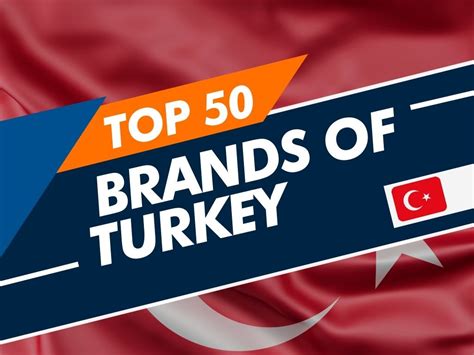Turkey’s position as a bridge between East and West has long made it an important player in global trade. For businesses looking to expand their reach by exporting from Turkey to the Netherlands, understanding the nuances of international commerce is crucial. This blog post aims to serve as a comprehensive guide for navigating the export journey from the bustling marketplaces of Turkey to the tulip-lined trade hubs of the Netherlands. We’ll explore the nuts and bolts of the export process, decipher the Dutch import regulations that could impact your goods, discuss the optimal export methods tailored for Turkish products, delve into the vital considerations for shipping and logistics, and even touch upon the cultural nuances to master business etiquette with your Dutch counterparts. Whether you’re a seasoned exporter or taking your first foray into international markets, this article will equip you with the knowledge to make your export journey as smooth as the fine silk of Anatolia.
Titles
Overview of Export Process from Turkey to Netherlands
The export process from Turkey to the Netherlands encompasses a series of meticulously orchestrated steps, intricately designed to ensure the seamless flow of goods across borders, in compliance with a strict regulatory framework that governs international trade and transportation. Among the multifaceted phases, the initial step involves a thorough assessment of the product class combined with a precise determination of the Dutch import requirements, serving as a bedrock for a successful export journey.
Furthermore, exporters must zealously engage with an array of paperwork and certifications such as the export declaration, commercial invoice, and any product-specific documents, which collectively operate as a passport for products to transcend Turkish borders and assimilate into the Dutch market. Employing the services of a reliable freight forwarder or logistics partner experienced in the nuances of Dutch regulations can mitigate risks, spearheading streamlined clearance at customs and fostering an expeditious transit.
The operational intricacies of this trans-continental traverse require a robust understanding of the best shipping practices and modalities, where the selection of the right transportation method becomes crucial; be it via air for time-sensitive goods or through maritime logistics for bulk shipments, each method must be tailored to optimize cost-efficiency and alignment with the export objectives of Turkish businesses. Logistics partners adept in tackling the intricate details of cross-border trade are invaluable assets in this context, shouldering the complex logistics and ensuring that Turkish products arrive in the Netherlands in pristine condition.
One must not overlook the significance of navigating through the cultural fabric that shapes business etiquette; understanding the nuances inherent in Dutch commercial cultures such as direct communication styles, punctuality, and accountability can influence the rapport between Turkish exporters and Dutch counterparts, ultimately serving to fortify trade relations and promote mutual economic prosperity. Harnessing the synergy between strategic logistics planning and cultural acumen can propel Turkish exports, ensuring a robust foothold in the Dutch market.
Understanding Import Regulations in Netherlands
When importing goods into the Netherlands, it is imperative to have a detailed understanding of the regulations set forth by the Dutch government, as these will profoundly influence the entire process, from the initial documentation to the final delivery. Adherence to these regulations ensures a smooth transaction and helps prevent potential legal issues or monetary losses that can arise from non-compliance; for instance, obtaining the correct import license as per the type of goods, and understanding the Dutch tax system, including the Value Added Tax (VAT), is essential.
Moreover, the Netherlands’ customs procedures are renowned for their strictness and detail orientation, making it critical for exporters to thoroughly prepare the necessary paperwork, such as a detailed invoice, packing list, and a certificate of origin, if required, thereby confirming that the goods being imported comply with the European Union’s standards and regulations. Considering the robust emphasis on safety and quality, certain products may be subject to additional controls and certifications, which require an intimate knowledge of EU directives and Dutch-specific standards.
In addition to the traditional documentation, it is also necessary to understand the complex system of tariffs and duties that are applicable to various goods entering the Netherlands. These costs can vary depending on the product’s origin, value, and type; thus, leveraging the expertise of a seasoned customs broker or logistics professional who is well-versed in classifying products under the correct Harmonized System (HS) codes can prove invaluable, offering reassurance that the goods will not face unexpected delays or charges upon arrival.
Recognizing the importance of environmental and ethical standards in the Dutch market is of equal consequence; any goods imported into the Netherlands must meet stringent environmental regulations and standards, as the country is deeply committed to sustainability and ethical trade practices, which means that additional certifications and documentation might be obligatory for commodities that are affected by these Dutch import requirements.
Choosing the Right Export Methods for Turkish Products
Selecting the most appropriate and efficient export methods for Turkish products is a pivotal step for businesses aiming to expand their market reach into the Netherlands. Companies must meticulously scrutinize various transport mediums, considering the dimensions of their goods, the urgency of delivery, and, of course, the associated costs that will inevitably impact the final pricing of their exported items, thereby directly influencing the competitive edge of these products within the dynamic and discerning European market.
When delving into the realm of international trade, it is paramount for Turkish exporters to strike an astute balance between speed and expense, two factors which tend to be inversely proportional within the context of global logistics; thus, a thorough understanding and strategic utilization of options ranging from air freight for time-sensitive goods to more cost-effective sea freight for bulkier consignments becomes an indispensable part of the export planning process. The decision-making becomes even more nuanced considering the factoring in of climate-controlled containers for perishables or reinforced packaging for delicate wares, underlining the importance of bespoke solutions for the diverse palette of Turkish exports.
In the intricate dance of international shipping, it is also vital to partner with reliable logistics companies that not only offer competitive rates but also bring to the table robust tracking systems and a proven track record of handling customs formalities with finesse, thereby ensuring that Turkish products are not only dispatched but also arrive at their destination in the Netherlands in a manner that is as seamless as it is timely, reflecting positively on the exporter’s commitment to customer satisfaction and regulatory compliance.
In conclusion, the selection of the correct export methods for Turkish products is not merely about moving goods from point A to point B; it is a comprehensive decision that influences fiscal outcomes, customer trust, brand reputation, and long-term business sustainability, thus requiring exporters to approach this aspect of international trade with the meticulousness and strategic foresight that it unequivocally demands.
Key Considerations for Shipping and Logistics
When delving into the realm of global trade, particularly the export process from Turkey to the Netherlands, it is imperative for businesses to have a comprehensive understanding of the key considerations for shipping and logistics. This comprehensive knowledge is not just limited to selecting the most cost-effective transportation methods, but it also encompasses having a discerning eye towards the intricacies of customs compliance, insurance requirements, and the stipulations of international shipping agreements.
One essential factor to take into account is the selection of a reliable logistics partner, which can greatly influence the timely delivery and condition of the exported goods; hence, a thorough vetting of potential shipping and logistics providers is crucial to ensure they have a robust track record of executing shipments to the Netherlands successfully. Additional emphasis must be placed on the intricate documentation process, a prominent part of which involves the precise preparation of export declarations and bill of lading – documents that stand as a testament to the shipment’s legality and authenticity.
Moreover, understanding and adhering to the Netherlands’ import regulations cannot be overstated; businesses ought to align their operations in accordance with Dutch standards to avoid any unforeseen hindrances that might emerge during the customs clearance process. A profound grasp of the intricate interplay between transportation costs, insurance premiums, and potential risks associated with different transit routes is also indispensable; these components must be skillfully balanced to achieve a harmonious blend of efficiency, cost-effectiveness, and security.
Last but not least, businesses must be agile and well-prepared to navigate the complexities of the logistic landscape, including the rapidly changing shipping rates, surcharges, and the impact of international geopolitical events that can have profound implications on trade routes and shipping schedules. A proactive approach to contingency planning – such as having alternative routes or backup suppliers – can be the difference between a successful export strategy and one that is fraught with delays and financial setbacks.
When engaging in international commerce, particularly in the vibrant trade between Turkey and the Netherlands, one must be acutely aware of the stark cultural differences that surface in business etiquette. Understanding and adapting to the nuances of Dutch business culture can mean the difference between seamless cooperation and unforeseen tension. For instance, the Dutch are known for their direct communication style and preference for egalitarianism in the workplace. This is a stark contrast to the more hierarchical and relationship-focused business culture predominant in Turkey, where indirect communication is often employed to maintain harmony and respect.
Furthermore, punctuality is held in high regard in the Netherlands, with meetings and appointments expected to start and end on time. The concept of time is money is deeply ingrained in Dutch business etiquette, as opposed to the more flexible approach to time management found in Turkish business practices. Recognizing this difference is key for Turkish businesses, and ensuring adherence to schedules is an essential aspect of showing respect and professionalism within the Dutch context. In addition, the formality of dress code and conduct differ significantly. Dutch business affairs tend to lean towards the understated, favoring business casual attire, while Turkish counterparts may opt for more formal attire to express professionalism and status.
The Dutch also have a practice of fostering a consensus-driven environment, where each member’s input is valued and decisions are often made collectively. To embrace the Dutch way, Turkish businesses must be prepared to engage in open discussion and democratic decision-making processes, a deviation from the top-down decision-making that Turkish executives might be accustomed to. Moreover, when it comes to negotiation, the Dutch favor transparency and frank negotiation tactics over the more relational and often circuitous negotiation style that is part and parcel of Turkish business dealings; this cultural juxtaposition requires careful balancing to maintain cordial and effective business relations.
Acknowledging these cultural idiosyncrasies is imperative for Turkish companies wanting to forge successful partnerships with their Dutch counterparts. Initiatives such as cultural awareness training can prove invaluable, enabling business professionals to navigate these cultural differences with ease, avoiding potential faux pas, and fostering long-term relationships built on mutual understanding and respect. Ultimately, the goal in mastering the intricacies of Dutch business etiquette is to pave the way for collaborative successes that are both respectful of cultural nuances and conducive to the thriving bilateral trade between Turkey and the Netherlands.






